Advertisement
Development Dominates Discussion Of Walsh's First Term
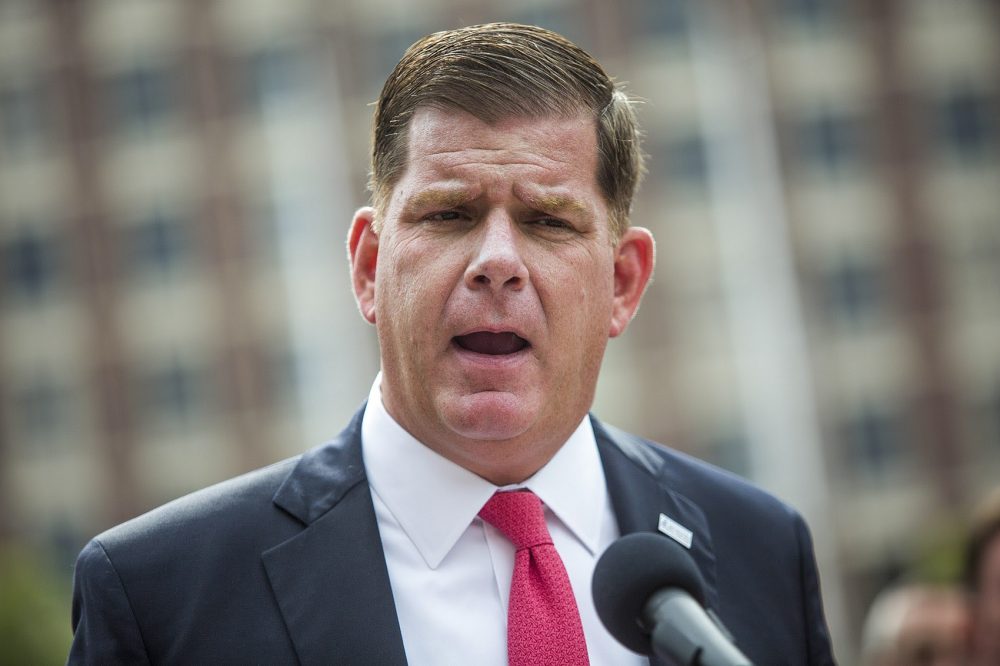
Boston Mayor Marty Walsh is trying to persuade voters to give him a second term. After Tuesday's preliminary election, he'll be up against Boston City Councilor Tito Jackson on the November ballot.
One issue dominates the discussion of Walsh's first term: the rapid development of the city and its impacts on Boston's residents.
I caught up with carpenter Mike Prokosch as he took a break from working on a Victorian house on Ashmont Street in Dorchester. He has something in common with Walsh — before Walsh became mayor, he was head of the Boston building trades. Prokosch also writes about the impact of development in the city.
"Marty is doing a good job of creating more housing," Prokosch said. "In fact, he's doing better than the goals that he set, and that's definitely a part of solving the affordability crisis."
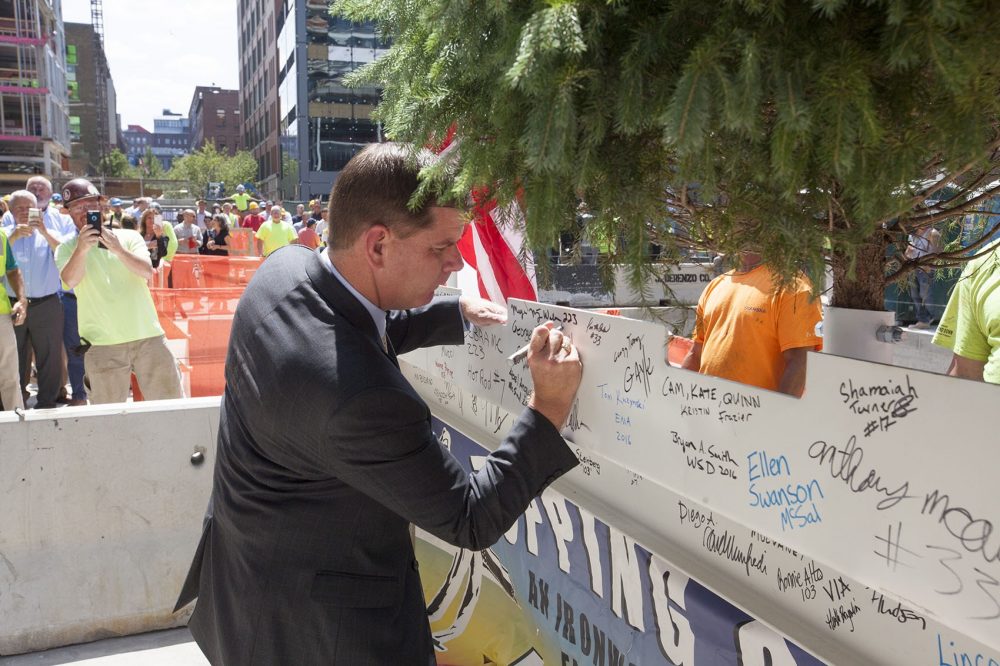
Walsh started out his first term with a plan to add 53,000 units of housing by 2030. More than 40 percent those units have either been built, are under construction, or have been permitted.
Under Walsh, housing permits are issued much more quickly than before he took office. A single-family home permit used to take 14 months when he became mayor. Now, it takes two-and-a-half months.
Northeastern University professor Barry Bluestone writes an annual housing report for the Boston Foundation. He gives Walsh high marks.
"I would give him a grade of A on many things," Bluestone said. "I think he has been quite impressive in a number of areas. He's certainly trying to work on the housing issue."
But Prokosch said the rapid development of housing is not necessarily solving Boston's housing problem.
"Because developers are overwhelmingly building housing that is not affordable to most people in Boston," Prokosch said.
Advertisement
The average rent for apartments in Boston has gone up, from $2,500 a month when Walsh became mayor to nearly $2,800.
"We're getting people with money and means moving into the city and people of color, which is a majority of Boston, and lower-income jobs, getting pushed out," Prokosch said.
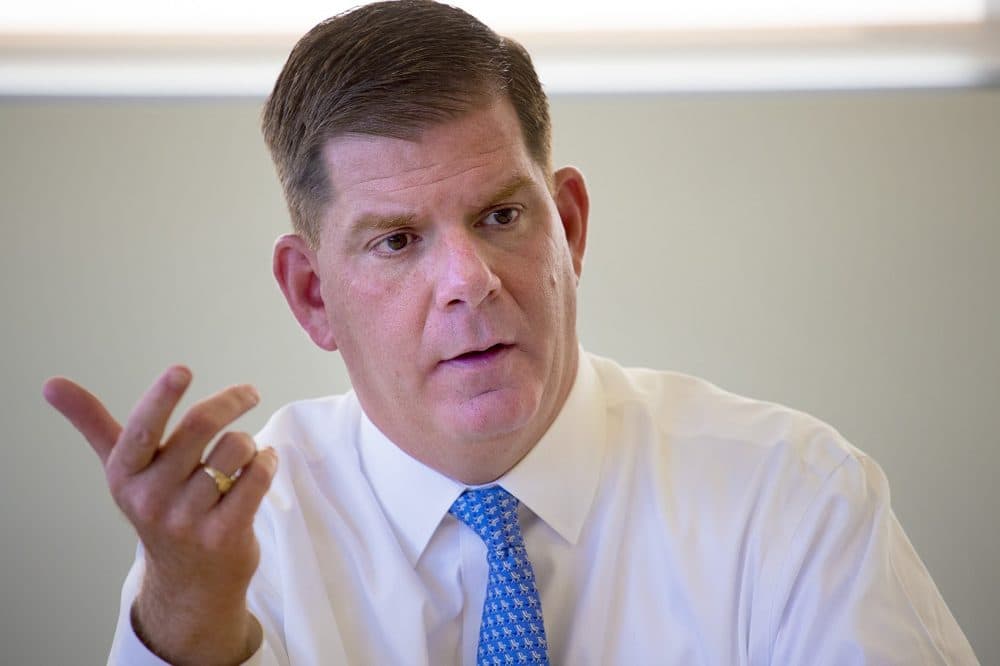
At Northeastern, Bluestone sees Walsh's record in a more nuanced way.
"He's making it easier for developers to come in and develop the housing we need," Bluestone said. "Much of it has been at the luxury level, but there's also been stuff at the low end. We now have to fight much harder for workforce housing, which is a difficult nut to crack, but he wants to approach that."
Some residents worry that the condo buildings going up in neighborhoods all over Boston are replacing older homes that give these neighborhoods their character.
"People are getting upset on how these developments are happening," said Eileen Boyle.
Boyle also has something in common with Walsh. She has known him since they were children, when Walsh grew up in what was then known as the Saint Margaret Parish section of Dorchester. Both are past presidents of the Columbia-Savin Hill Civic Association, but Boyle often finds herself at odds with the mayor now.
She meets me at McKenna's, the Savin Hill coffee shop the mayor still frequents even though he now lives in another Dorchester neighborhood, Lower Mills.
"We understand that development has to happen, but when you start to encroach into the neighborhoods, and you're tearing down beautiful homes, people are starting to get really upset about that," Boyle said.
Boyle said Walsh has not engaged neighborhood groups the way Mayor Tom Menino used to.
"What I'm hoping is that he's going to wake up and start talking to community people, because he definitely has put us [on] the back burner," Boyle said.
Walsh disputes that.
"We listen to community groups," Walsh said. "I think what we try to do is work with them to get to a point where people feel comfortable, and I'd probably say 90 percent of the projects that get approved for the city, if not even higher than that, there's an understanding that there's some support there. But I think for the most part, you need to work with the community."
Walsh granted me a six-minute interview at the Ashmont T station in Dorchester. He's been criticized for not paying enough attention to the MBTA, which is controlled by the state, not the city, and for ignoring the needs of cyclists and pedestrians. He promises that in a second term, he would focus on installing traffic signals that respond to congestion, that give buses priority and that provide safer crossings for pedestrians.
"We're looking at the signalization of the city," Walsh said. "We're in the process right now of revitalizing the lane markings and painting, and I really think in the second term, we have to focus on alternative modes of transportation, bicycles and pedestrians."
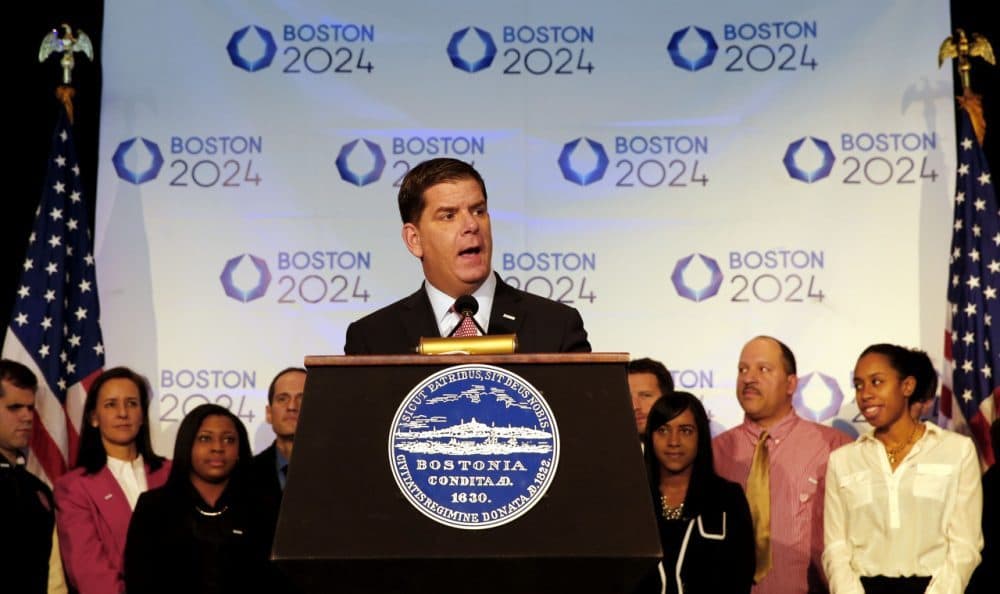
Much of Walsh's first year in office was focused on Boston's bid for the 2024 Olympics. In July 2015, in the face of opposition from Bostonians, the U.S. Olympic Committee pulled Boston as the U.S. candidate on the day Walsh said he would not sign a Host City Agreement holding taxpayers responsible for any cost overruns, even though he had already signed several documents committing the city. Walsh says he does not regret going after the Olympics.
"We got chosen the host of the 2024 games as far as the United States representative," Walsh said. "That's a positive for Boston. Now, I wouldn't sign the agreement because I wasn't going to mortgage the future of the city away, potentially, but no, it didn't cost us anything. If anything else, it's a learning experience, and I think that people so focused on the Olympics ... it wasn't a bad thing."
Walsh also aggressively pursued General Electric to move its headquarters from Connecticut to Boston. He offered the company $25 million in property tax breaks in exchange for 800 jobs.
Some have criticized the tax breaks, pointing out that companies are moving to Boston without asking for incentives.
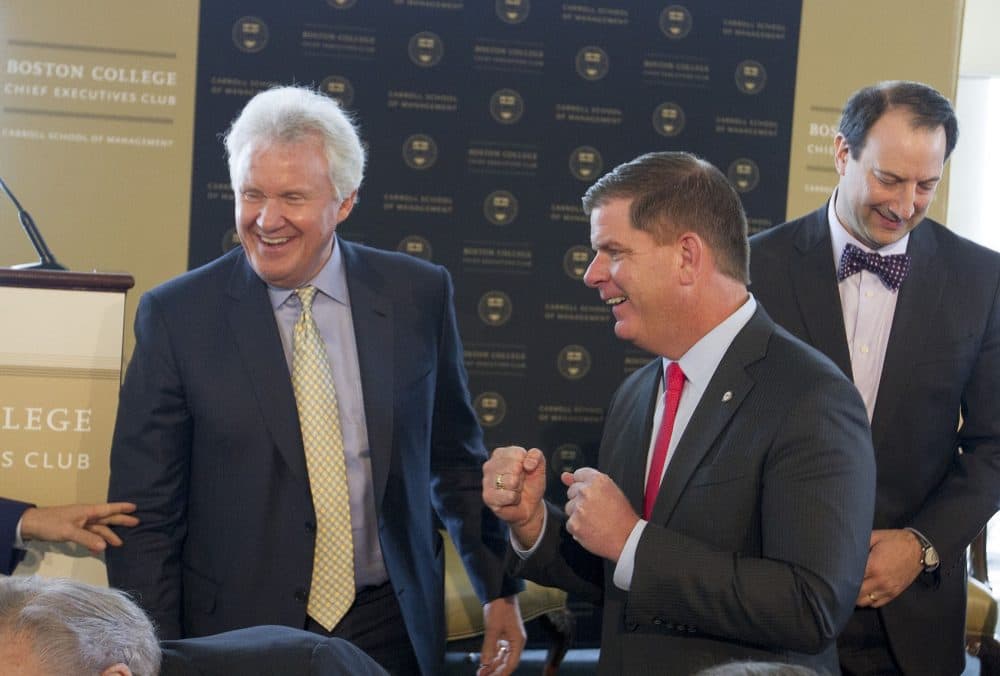
Walsh is now making a pitch for a much bigger number of jobs: Amazon's second headquarters, which the company says will eventually create up to 50,000 jobs. He says he's not worried about getting into a bidding war with other cities over tax breaks.
"We kind of did with GE a little bit, but I think it worked out OK for us, and we're fine," Walsh said. "I mean, I'm not worried about that. Amazon's going to make a decision based on what they think's right for the company, and I think if we put the right proposal together and we're the right fit, we'll be the ones who are chosen."
If the results of the preliminary election, in which Walsh took 63 percent of the vote, are an indication, Walsh is likely to be the one chosen by the voters. Many seem eager for him to make good on the promise of prosperity for all of Boston's residents as the city rides one of the greatest economic booms in its history.
This segment aired on September 29, 2017.
